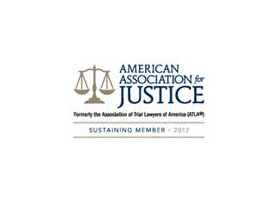What Happens When You Try to Comply with the Statute of Limitations, But Fail?
 We’ve taken a closer look at the statute of limitations in a number of earlier blogs. The statute of limitations establishes the amount of time you have to file a legal claim without losing some or all of your rights. What happens if you make every effort to comply with the filing date, but you simply fail? Is the statute of limitations a hard and fast rule? Other than the discovery rule, which we’ve addressed in another blog, are there any instances where you can still bring legal action, even though the date for filing has passed? In New Jersey, there is…it’s known as the “substantial compliance” doctrine.
We’ve taken a closer look at the statute of limitations in a number of earlier blogs. The statute of limitations establishes the amount of time you have to file a legal claim without losing some or all of your rights. What happens if you make every effort to comply with the filing date, but you simply fail? Is the statute of limitations a hard and fast rule? Other than the discovery rule, which we’ve addressed in another blog, are there any instances where you can still bring legal action, even though the date for filing has passed? In New Jersey, there is…it’s known as the “substantial compliance” doctrine.
What Is the Substantial Compliance Doctrine?
The substantial compliance doctrine is what is commonly referred to under the law as a “rule of equity.” The concept of rules of equity comes from the English common law, which provides the basis for much of American law. In essence, rules of equity are based on concepts of fairness and can be used to overrule statutes or case law when, in the opinion of the court, those approaches won’t bring about a fair verdict.
In its application, the principle of substantial compliance allows a court to essentially waive or suspend the statute of limitations in cases where the injured party made a concerted effort to file within the statutory period, but failed.
When Will the Doctrine of Substantial Compliance Be Applicable?
The New Jersey courts have established five requirements to successfully invoke the substantial compliance doctrine and suspend the statute of limitations:
- Doing so must not unduly affect the defendant
- The injured party must show a series of steps taken in a good faith effort to comply with the statute of limitations
- The defendant must have had reasonable notice of the injured party’s claim
- The injured party must show a general compliance with the purpose of the statute of limitations
- The injured party must provide a reasonable explanation as to why he or she failed to file within the statutory period
Contact Howard D. Popper, P.C.
At Howard D. Popper, P.C., we can help protect your rights. For a free initial consultation to discuss your options after any type of personal injury, contact our office online or call 973-993-8787 to set up an appointment. We have offices in Morristown and Newton.
We handle all personal injury claims on a contingent fee basis. You won’t pay any attorney fees unless we recover damages for your losses.













